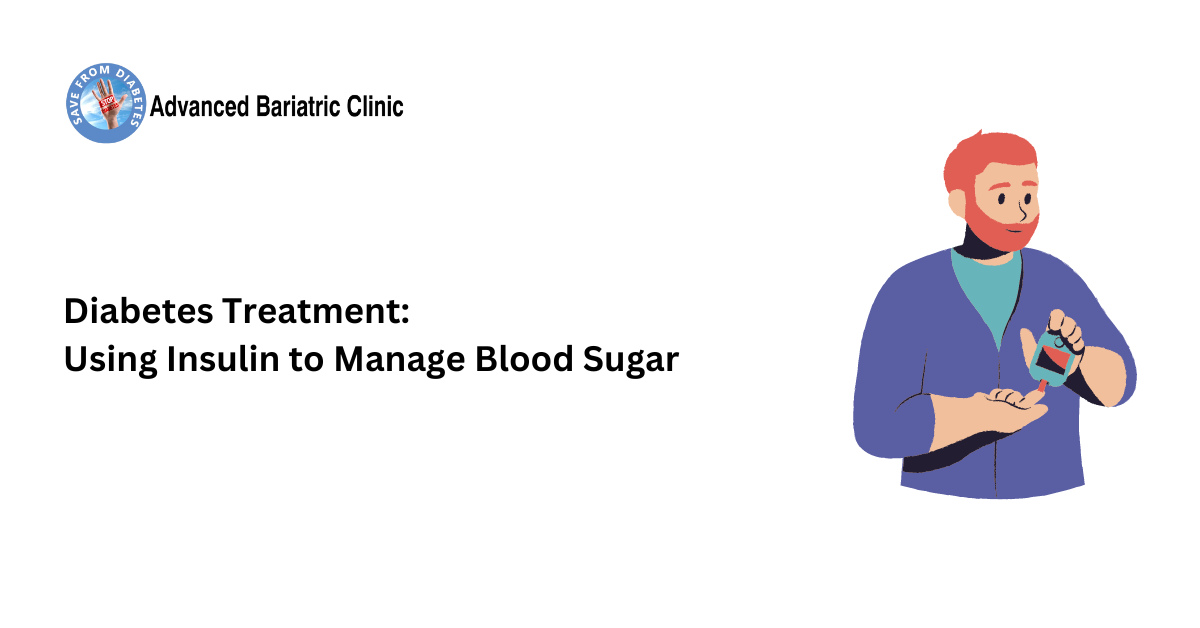Top 3 Expert Tips for Blood Sugar Management

Ensuring optimal blood sugar levels is crucial for general health and wellness. Variations in blood sugar levels can result in various health problems, including metabolic irregularities and diabetes. Fortunately, there are a number of approaches recommended by Advanced Bariatric Clinic that can effectively aid individuals in regulating their blood sugar levels and enhancing overall well-being. Presented below are the leading three expert recommendations for blood sugar management:
Expert Tips for Blood Sugar Management
Maintaining a Well-Balanced Diet and Monitoring Portions
One of the most fundamental aspects of managing blood sugar lies in the adoption of a diet that is both balanced and nourishing. The inclusion of an assortment of whole foods, encompassing lean protein sources, intricate carbohydrates, vegetables abundant in dietary fibre, and wholesome fats, can contribute to the stabilisation of blood sugar levels. Professionals suggest the importance of being mindful of portion sizes to prevent excessive consumption, which can result in sudden blood sugar spikes.
Engagement in Routine Physical Activity
Regular participation in physical exercises stands as a potent tool for the control of blood sugar. Exercise heightens the sensitivity of insulin, which enables the body to make efficient use of glucose. Aerobic exercises like brisk walking, jogging, and cycling, alongside resistance training, collectively contribute to the advancement of blood sugar management.
Read More : Diabetes prevention: 5 tips for taking control
Efficient Stress Handling and Prioritising Restful Sleep
Prolonged stress and insufficient sleep can disrupt the equilibrium of blood sugar levels. Experts highlight the significance of techniques for stress management, such as meditation, deep breathing exercises, and yoga, which facilitate the reduction of stress hormone levels and endorse improved blood sugar control. Furthermore, the prioritisation of ample sleep is of utmost importance, given that a lack of sleep can lead to the development of insulin resistance and an increase in appetite.
Final thoughts
Maintaining steady blood sugar levels carries pivotal importance for overall health, and the incorporation of these tips from the Advanced Bariatric Clinic can yield a substantial impact. It’s essential to remember that consistency is the cornerstone of success, and gradual, sustainable changes can pave the way for long-term advantages concerning health and well-being. Always exercise caution and seek advice from healthcare professionals before introducing significant modifications to your dietary patterns, exercise regimen, or lifestyle, particularly if you have existing health conditions.
Recent Posts
-
 Caring for Young Warriors: Managing Diabetes in Children and Adolescents in Hyderabad
Caring for Young Warriors: Managing Diabetes in Children and Adolescents in Hyderabad -
 Demystifying Diabetes in Hyderabad: Prevalence, Causes, and Preventive Measures
Demystifying Diabetes in Hyderabad: Prevalence, Causes, and Preventive Measures -
 Balancing Tradition and Health: Traditional Hyderabadi Foods for Diabetes Managemen
Balancing Tradition and Health: Traditional Hyderabadi Foods for Diabetes Managemen -
 Navigating Diabetes in Hyderabad's Climate: Tips for Effective Management
Navigating Diabetes in Hyderabad's Climate: Tips for Effective Management -
 Why Advanced Bariatric Clinic is the Best Diabetologist in Hyderabad
Why Advanced Bariatric Clinic is the Best Diabetologist in Hyderabad







